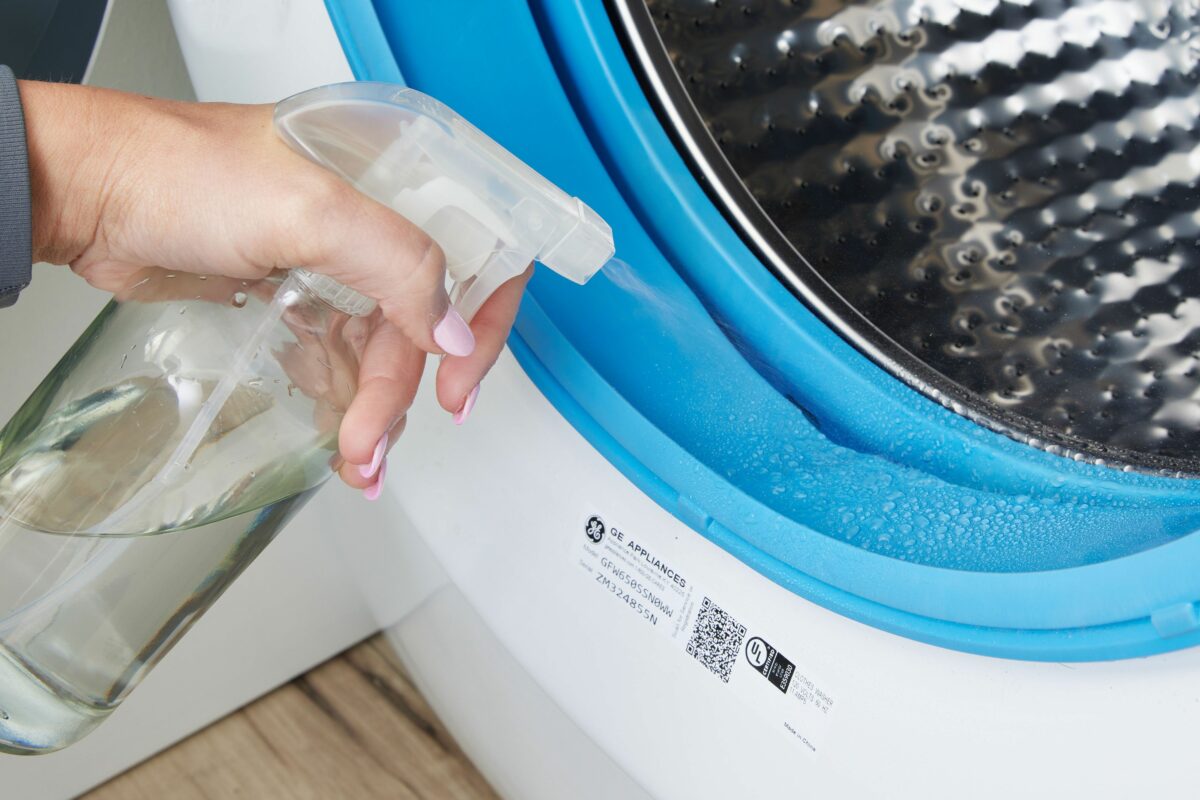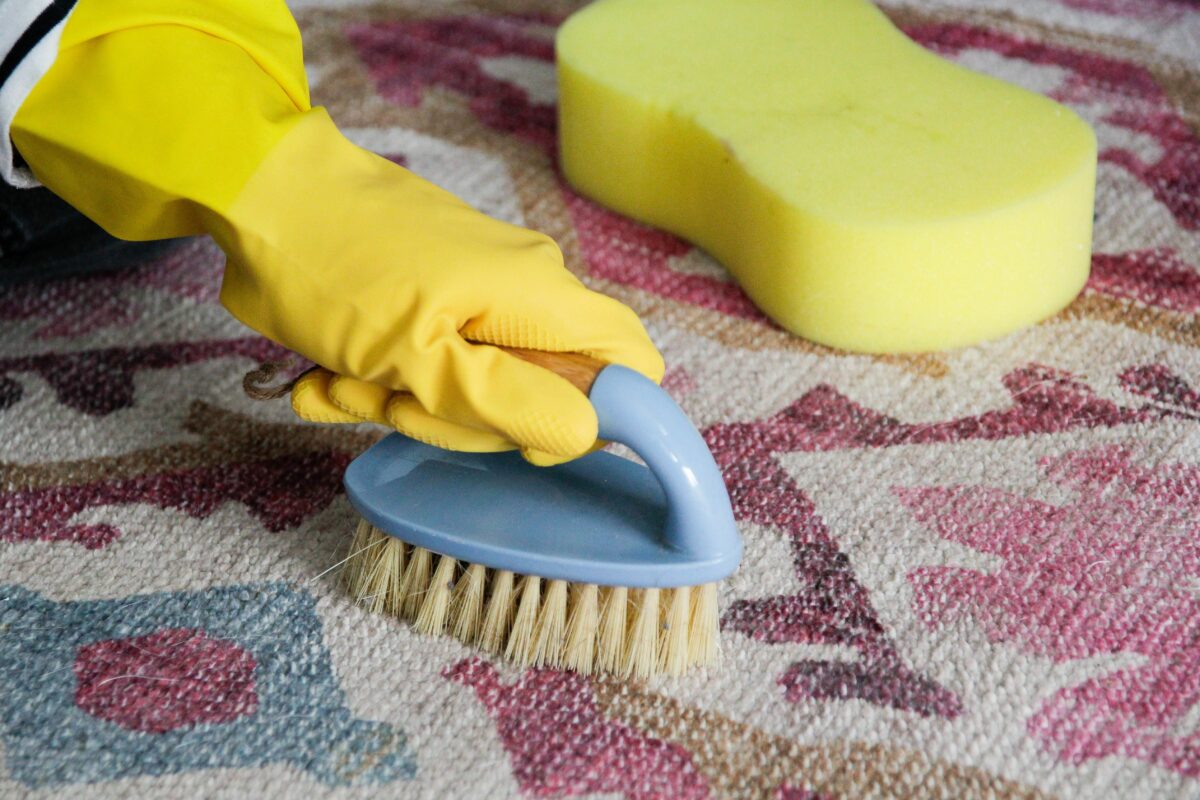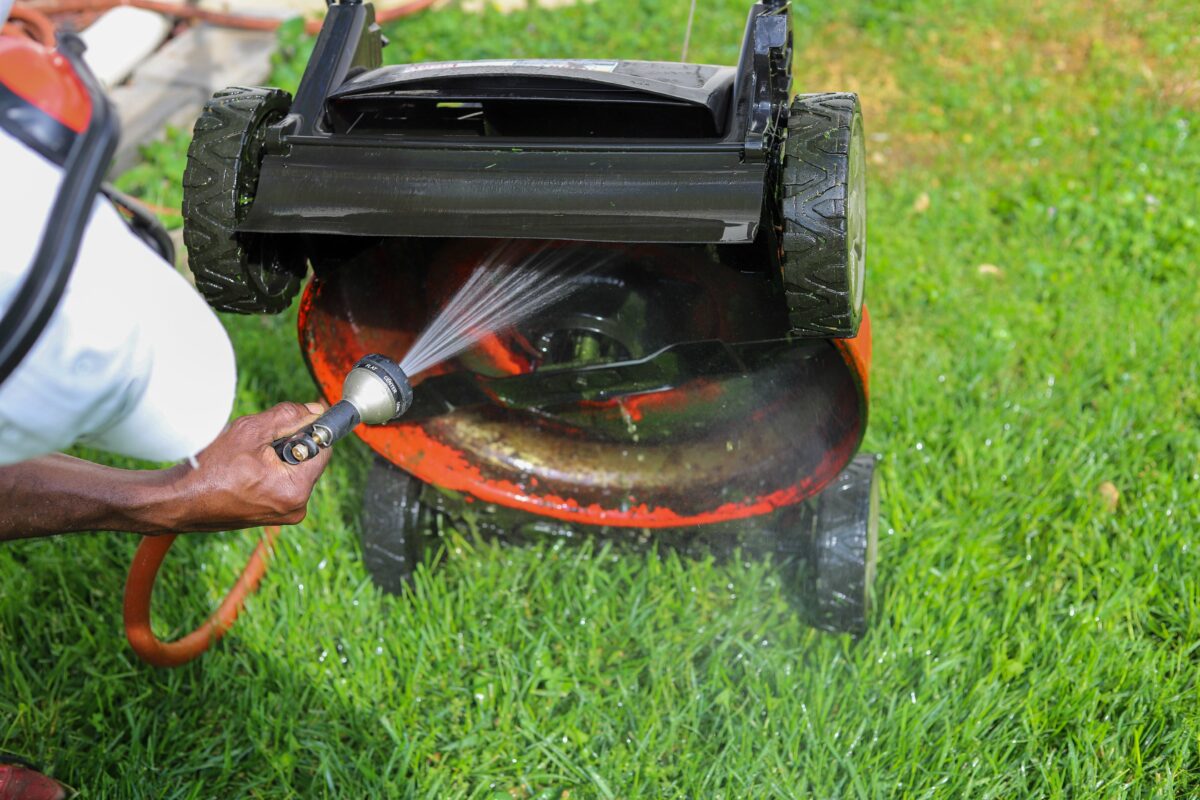Many pet owners see their pets as a part of the family, leading them to let their cats or dogs sleep in the bed with them rather than in their own or a kennel—but is that the right decision? Cleaning and laundry experts offer their opinions to help you decide what is best for your home and pet, including tips and tricks that can help ensure a clean and comfortable sleep zone if you do choose to co-sleep with your furry friend.
- Kim Romine is a fabric care scientist at P&G Tide.
- Mary Gagliardi (aka Dr. Laundry) is an in-house scientist and cleaning expert at Clorox.
Is It OK to Let Your Pet Sleep in Your Bed?
“While co-sleeping with your pet can introduce some extra soils, don’t let it worry you,” assures Kim Romine, P&G Tide scientist. Armed with the right laundry tools and schedule know-how, you’ll be able to keep your sleep space clean and tidy, even if you’re cuddling up with a four-legged friend or two. Here, Romine and Mary Gagliardi (aka Dr. Laundry), Clorox’s in-house scientist and cleaning expert, deliver their top laundry and maintenance tips for sharing a bed with your pet.
Considerations Before Letting Your Pet Sleep in Your Bed
While there’s not necessarily a right or wrong answer to the semi-controversial question of whether the bed is the right place for your pet to sleep, there are certainly some considerations to keep in mind before making a decision one way or another. “You may love cuddling and co-sleeping with your pet, but your pet is leaving fur and pet dander in your sheets every night,” says Romine. “If they have been outside without having their paws washed, they may also be bringing dirt and soils into the bed.”
If you are okay with taking extra measures to keep your bed clean, there is no reason you can’t sleep with your pet. These measures may include the frequency of how often you wash your bed linens, introducing extra mattress protectors, and upping the caliber of your laundry products with formulas suited for disinfecting and stain fighting.
Bedding Laundry Tips for Sleeping with Pets
When it comes to keeping your linens clean and in tip-top shape, your normal laundry routine might not cut it once you add a furry friend to the mix. You’ll also likely want to use products specifically formulated for your new laundering needs.
Romine suggests starting with a detergent that has both deep-cleaning and odor-fighting properties to keep up with your co-sleeping arrangement. Gagliardi also recommends using a bleach product that’s suited for the fabric content of your bed linens and to always use hot water for maximum cleaning power. You can follow up with a clarifying fabric rinse that will eliminate any remaining residues and odors. Lastly, use dryer sheets formulated for picking up pet hair.
Emily Minton Redfield
How Often to Wash and Replace Bedding
“Pets that are active outside may be dirtier than you realize,” says Gagliardi. “If you don’t protect the bed, you’ll need to wash the bedding that a pet sleeps on more frequently.” Highly active pets and pets that enjoy rolling around outside are more than likely going to require your sheets to be laundered more often than usual. This could mean bumping your linen laundering schedule up from once a week to as frequently as every other day.
Prevent Having to Wash Too Often
“Lots of people choose to let their pets climb on their beds (and other furniture) for many perfectly good reasons, so it’s good to have strategies in place to limit the need to wash comforters, duvets, and duvet covers more frequently than is typically necessary,” Gagliardi advises. Realistically—and with the proper bedding protection measures—you should plan on washing your sheets weekly when allowing your pet to sleep on the bed. “The good news is that you should really wash your sheets every one to two weeks even if your pet is not sleeping in the bed,” Romine says. “The human body produces sweat, sebum, and other body soils which end up in your sheets, meaning they need to be laundered regularly to prevent the build-up of these soils.”
As long as you properly protect your bedding and don’t have a pet that is routinely getting dirty outside, you can stick to a once-a-week cleaning schedule for bedding. Not washing bedding too often can help reduce the wear and tear that comes with each laundry cycle.
How to Protect Your Bed When Co-Sleeping with a Pet
“If you love having your pet sleep in the bed but are worried about what your pet might be bringing onto the bedding, try giving them a dedicated blanket where they can have their own space,” advises Romine. “If they are only using the one item, you can switch it out as you wish to launder more often and keep the extra pet dander, hair, and soil off the sheets you are sleeping in.” This can be as simple as laying an extra sheet over a section of the bed where the pet will be sleeping.
With all of the cleaning of bedding that comes with allowing your pet to sleep on your bed, don’t forget about the mattress. Be sure to use a waterproof mattress pad to protect against possible accidents. This should help limit the amount of cleanup that can come along with pet-related messes. If one does seep onto the mattress, Gagliardi suggests blotting away any excess moisture and then treating the affected area with a pet urine remover.














